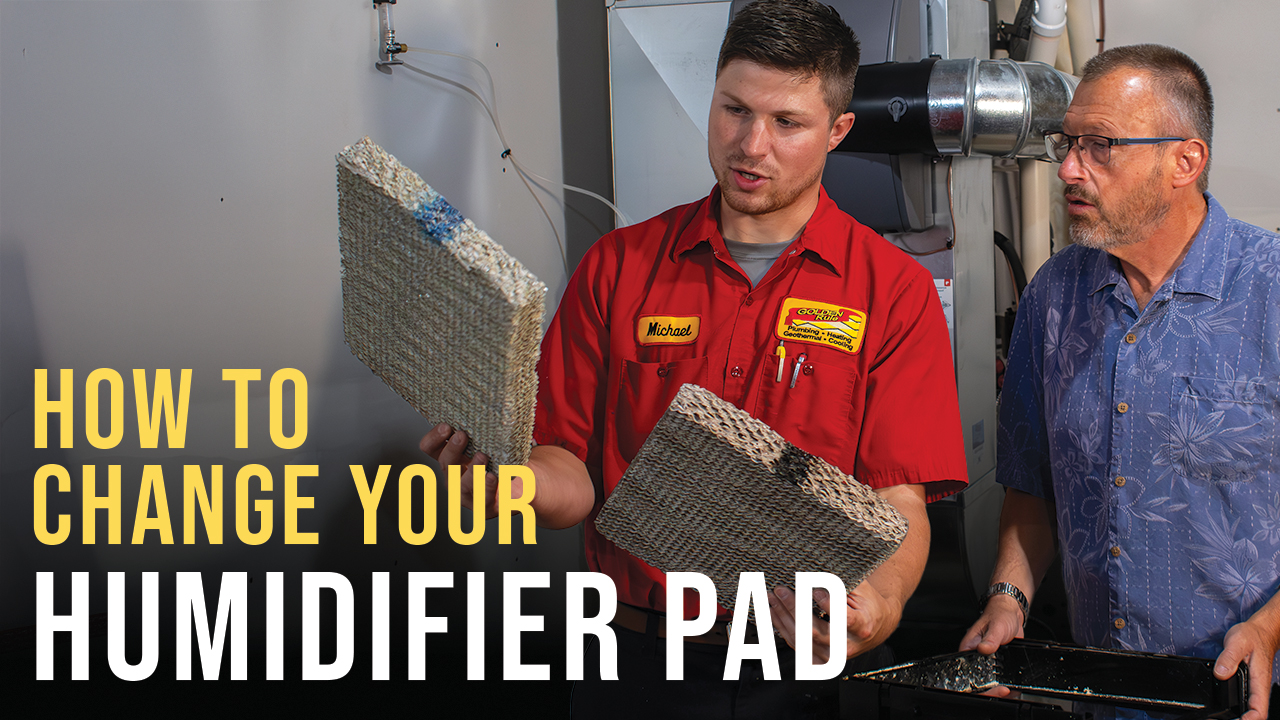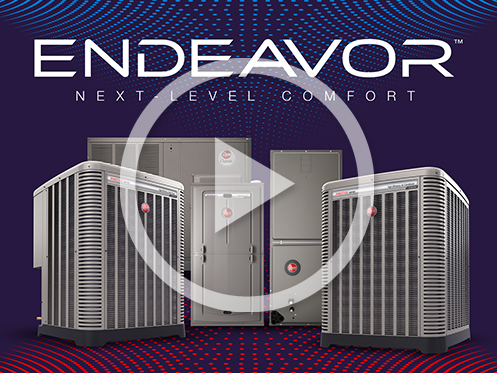Updated January 17, 2024
Are you looking for ways to make your home more comfortable and save on heating and cooling costs? If so, upgrading to a variable-speed HVAC system is a great option. Variable-speed HVAC systems have several advantages and provide many essential benefits compared to traditional HVAC systems. This guide will explain all you need to know about variable-speed HVAC systems, how they work, and why they can be an excellent choice for your home.
Comparing Traditional and Variable-Speed HVAC Systems
Most residential HVAC systems have a single-stage or two-stage furnace paired with a central air conditioner. Some homes also have a single-stage or two-stage heat pump to make heating and cooling more efficient. A single-stage HVAC unit has a single speed or power setting, which means it always runs at 100% of its total heating or cooling capacity.
Two-stage units have two speeds or power settings and typically run at approximately 65% capacity. Two-stage units can run at total capacity when more heating or cooling is needed, such as on extremely hot or cold days or when the home is much hotter or colder than the desired temperature. However, they typically run on the lower setting around 80% of the time.
Variable-speed HVAC units typically have several different settings and can usually operate at anywhere from around 25% to 100% capacity. This allows them to automatically regulate how much heating or cooling they produce at any given moment, helping make the system much more energy efficient while ensuring that the home’s temperature remains consistent.
Variable-speed air conditioners and heat pumps regulate the compressor speed to speed up or slow down the rate at which the refrigerant moves through the system. Variable-speed furnaces are also referred to as modulating furnaces. These units have a modulating gas valve that can open and close to simultaneously regulate how much gas the unit burns. All variable-speed HVAC units are paired with a variable-speed blower or fan. This provides many settings and can speed up and slow down to regulate how much air flows through the system.
How Variable-Speed HVAC Systems Work
A variable-speed HVAC system monitors how quickly the building heats up or cools down. These systems typically start running at around half speed, or 50% of the total heating or cooling capacity. On much hotter or colder days, the system slowly starts ramping up. It will run at higher speeds until the home’s temperature is the desired thermostat setting.
One thing that sets variable-speed systems apart from other models is that they won’t just turn off when the thermostat senses the building is at the correct temperature. Instead, variable speed systems are designed to run almost constantly at a much lower speed. They usually only shut off during much milder weather when virtually no heating or cooling is needed.
A variable-speed system will slow down once the thermostat senses the home is at the desired temperature. It will only produce however much heating or cooling is needed to keep the temperature constant. The system will then continually adjust the heating or cooling rate to prevent temperature fluctuations. This ensures that the home always stays at the desired temperature. A variable-speed system will also prevent issues with cold or hot spots, which happen when a single-stage system only runs for a few minutes at a time.
How a Variable-Speed HVAC System Can Save You Money
Installing a variable-speed furnace, AC, or heat pump in your home can save you much money compared to a single-stage or two-stage unit. The fact that variable-speed systems run constantly leads some people to believe they use a lot of energy. The opposite is true.
When a variable-speed system runs at only 50% capacity, it uses around 75% less energy than a single-stage system running at full speed. This means that a variable-speed AC or furnace could save you several hundred dollars a year compared to a single-stage unit’s cooling or heating process.
Variable-speed HVAC units are much more expensive than single-stage or two-stage units. However, a variable-speed unit will almost always be cheaper in the long run because it will save you money on your energy bills.
Variable-speed HVAC systems are much more energy efficient because they use less energy when running at lower speeds. Also, single-stage units, especially central AC equipment and heat pumps, draw a lot of electricity to start up the compressor and blower motors at full speed. Most units use around three to five times as much electricity when starting up as they use when running. Single-stage units usually cycle on and off twice or thrice each hour. This continuous cycling leads to lots of extra energy consumption.
Other Benefits of Installing a Variable-Speed HVAC System
Variable-speed HVAC systems provide other significant benefits, such as improving the air quality in your home. Since the system runs constantly, the air in your home is filtered and circulated much more frequently. This means that the HVAC system’s air filter traps far more dust, pollen, and other allergens, allowing the system to breathe more easily.
A variable-speed system is far superior to a single-stage unit in humidity control. All air conditioners draw moisture out of the air to help control the indoor humidity. As the unit runs, moisture condenses on the evaporator coil so that the humidity level in the air flowing through the system decreases. By running constantly, variable-speed units can remove around 400% more moisture than single-stage units. This can be a massive help in places where summers are extremely humid. The air inside a home often feels very sticky and muggy.
A variable-speed HVAC system will also help prevent condensation and mold growth by keeping the humidity level in your home much lower. This is also important for improving indoor air quality and preventing allergy issues.
Another advantage of variable-speed HVAC systems is that they are extremely quiet whenever they’re running at lower speeds. The system will produce around the same volume when running at full speed, but this typically happens less than 20% of the time.
With over 25 years of experience, Golden Rule is an excellent choice for HVAC installation or repair services. We offer various traditional and variable-speed furnaces, AC units, and heat pumps. We also specialize in HVAC repairs, maintenance, and indoor air quality assessments. For more information on the benefits of upgrading to a variable-speed HVAC system or to schedule any heating, cooling, plumbing, or electrical services, call us today.
If you found this post helpful, check out the importance of regular HVAC maintenance:


How to Change Your Furnace Humidifier Pad – A Simple DIY Guide Maintaining the right humidity levels in your home is essential for comfort and air quality.... Read More

How to Change Your HVAC Filter Like a Pro Have you noticed your energy bill creeping up for no apparent reason? Or maybe your home feels stuffier... Read More
Ruud R962V Endeavor Line Achiever Plus Series Gas Furnace: The Ideal Choice for Salt Lake City Homes

Ruud R962V Endeavor Line Achiever Plus Series Gas Furnace: The Ideal Choice for Salt Lake City Homes Golden Rule Plumbing, Heating & Cooling is proud to provide... Read More